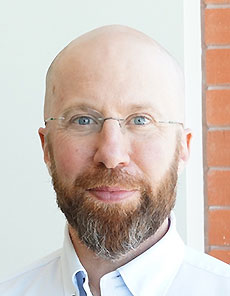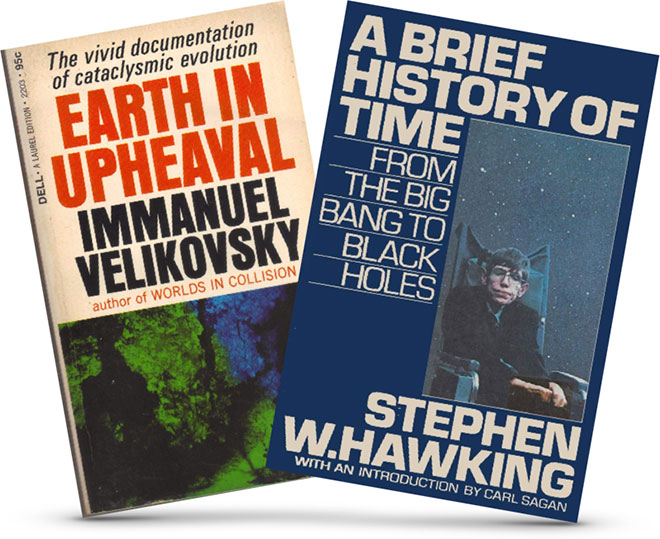A vaccine against pseudoscience
 |
Robert E. Campbell (化学専攻 教授) |
| Robert E. Campbell is a Professor in the Department of Chemistry, School of Science. His research is focused on protein engineering applied to the development of biosensors for imaging of neural activity and metabolism. |
As I approach fifty years of age and transition into a new career phase at the University of Tokyo, I find myself reflecting on the path that led me here. When I was a child, I lived in a community named Oyama in British Columbia, Canada. Curiously, this community was named in honor of General Oyama Iwao(大山 巌), whose statue stands in Kudanzaka Park. Was it destiny that a boy from a community named after a famous Japanese person would become a faculty member in Japan? Well no, it is a mildly interesting coincidence. I was fortunate to have received a vaccine against pseudoscientific thinking, and fictions like destiny, at a young age.
As an elementary school student, I had no conception of a boundary between science and pseudoscience. I read constantly, devouring books about ghosts, space aliens, civilizations, and dinosaurs. All written words seemed equally trustworthy. My mother appreciated the educational value of reading. When I was thirteen, she purchased the 1985 volume of the Encyclopedia Britannica. I was allowed to read during dinner, as long as it was an encyclopedia!
In high school, I enjoyed reading popular science magazines and books and my favorite was Stephen Hawking’s A Brief History of Time(1988). Hawking helped me to appreciate the beauty and elegance of our scientific understanding of the cosmos. Through reading and lessons, I came to understand, in theory, that a key difference between science and pseudoscience was the method and reasoning used to arrive at a conclusion. Science employs the scientific method and pseudoscience does not.
 |
| As a teenager, my struggle to fit these two books into a logically consistent worldview taught me the necessity of skepticism. |
It was a very different book, a dog-eared paperback found at a used book sale, that tested my theoretical understanding and vaccinated me against pseudoscience. That book was Earth in Upheaval(1955) by Immanuel Velikovsky. Knowing nothing of the author’s infamy, I found their use of arguments from“ evidence” to be compelling and not so different from Hawking’s. But if these writings were true, many things I had been taught must be false. One claim I recall is that sudden arctic floods caused the extinction of the mammoths. This was incompatible with my understanding of ice age glaciers slowly retreating and shrinking the mammoth’s habitat over thousands of years. For weeks I struggled to reconcile the book with my youthful, science-based, understandings. Much has been written about Velikovsky, including criticisms that are far more sophisticated than what my teenage self could have thought of. But eventually I saw a fatal flaw that identified Velikovsky’s writing as pseudoscience. They had a pre-determined worldview(one in which mythical catastrophes, such as biblical flooding, occurred), and were twisting facts and fabricating theories to provide“ evidence” to support this view. This is not the scientific method. Evidence is not sought to explain theories; theories are sought to explain evidence.
In the internet age, the struggle to distinguish science from pseudoscience has become much more challenging, even as the consequences have grown much more serious. The Velikovskys of the world, with their wide-range of passions and distorted worldviews, are thriving on the internet. If there is a silver-lining to the proliferation of online Velikovskys, it is that one does not need to seek out old paperbacks to have vaccinations similar to mine. In fact, a social media account makes exposure unavoidable. It is my hope that, immune to pseudoscience, a population of skeptics will push back against the Velikovskys, shrink the habitats in which they thrive, and ultimately send them the way of the mammoths.
As a teenager, my struggle to fit these two books into a logically consistent worldview taught me the necessity of skepticism.
理学部ニュースではエッセイの原稿を集しています。自薦他薦を問わず,ふるってご投稿ください。特に,学部生・大学院生の投稿を歓迎します。ただし,掲載の可否につきましては,広報誌編集委員会に一任させていただきます。
ご投稿は rigaku-news@adm.s.u-tokyo.ac.jp まで。
理学部ニュース2022年1月号掲載


